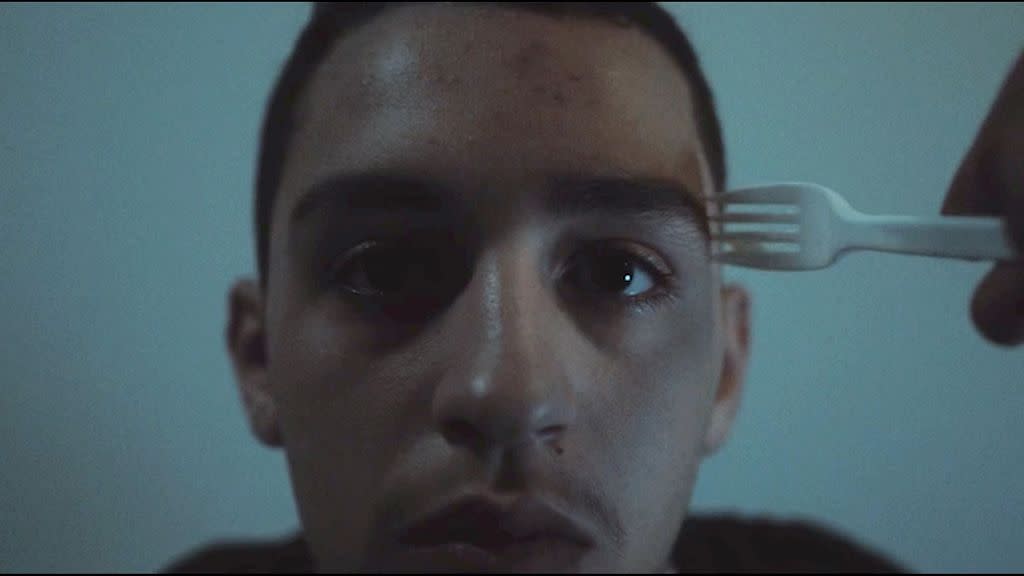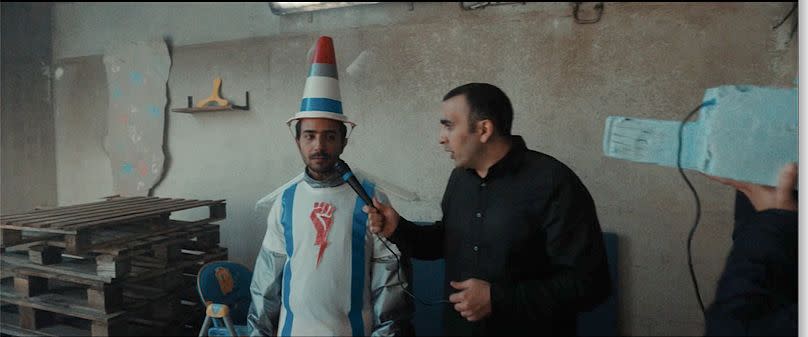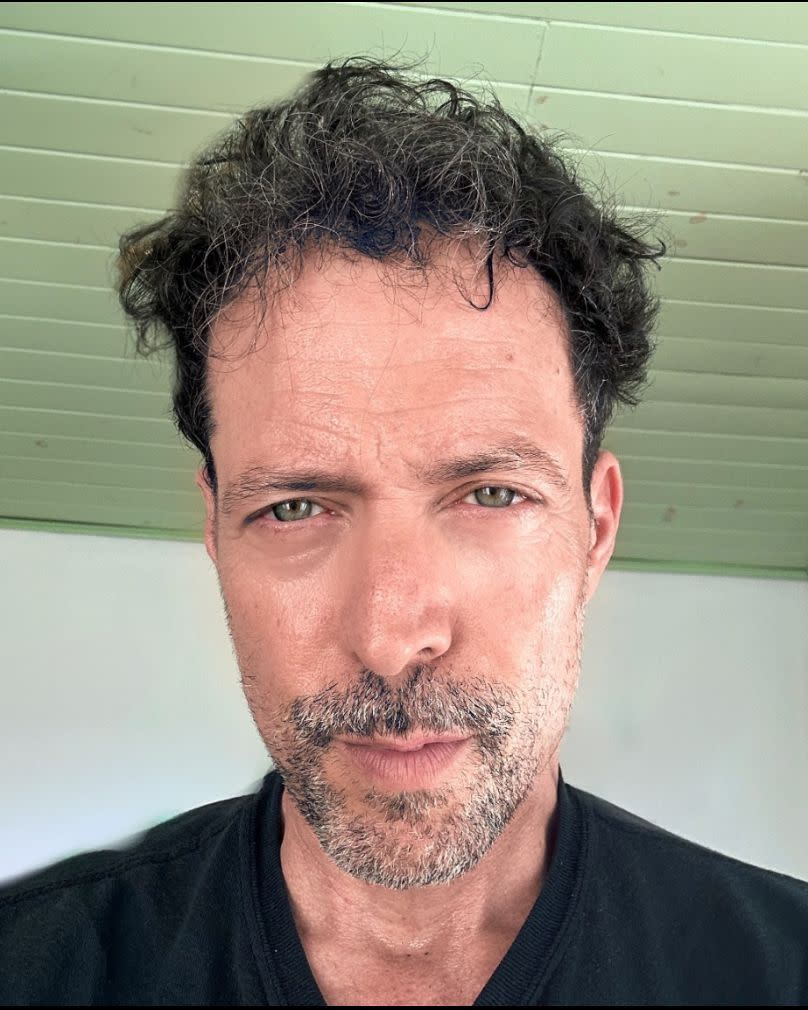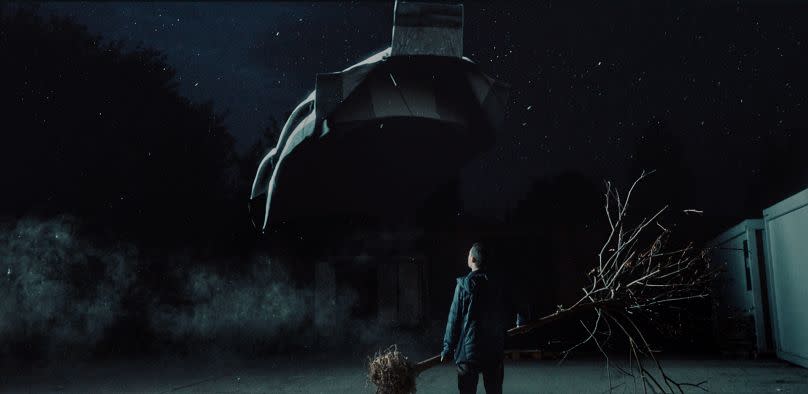'Xoftex': How zombies and humour can restart our empathy machines

In a year of elections which have seen far right parties achieve remarkable gains largely stoked by fear of immigrants and refugees, one remarkable new film - Xoftex - portrays the plight of asylum seekers not via the usual grinding despair of social reality but through humour, fantasy and the occasional zombie.
“Empathy should not be a bonus, it should be built in,” film director Noaz Deshe says. “It's not something we should even need to mention. It's a basic compound of you being a human being. And we're losing it.” I’m talking to Deshe about his fantastic new film Xoftex. We’re on the terrace of the Pupp Hotel, the baroque beauty which inspired Wes Anderson’s Great Budapest Hotel.
Deshe’s film was screened at last week's Karlovy Vary International Film Festival that runs in the Czech spa town every July. As we talk Rolls Royces disgorge movie stars and producers below us, but we’re here to talk about a wholly different movement of people: the refugee crisis that struck Greece in the wake of the Syrian Civil War.

Xoftex is a refugee camp where the detainees wait to learn their fate as asylum seekers. “I changed the name because it's an actual place. It was behind an industrial train yard and trains would stop before they heading for the Balkans. Gang activity was rife and people were trying to get on the trains. It was dangerous. There was a burnt-out toilet paper factory.”
The refugee crisis had overwhelmed the Greek authorities: “If you visited Greece in 2015-18, it was so chaotic, in terms of just trying to deal with the massive amount of people. You can have a lot of criticism towards the government, but how do you deal with this influx? An obscene amount of children were disappearing. And Xoftex had a corruption scandal that involved the Minister of migration and missing funds.”
And yet despite the manifold horror stories, the purgatorial limbo of refugees, the grief and uncertainty, what is remarkable about Deshe’s film is how it refuses to fall into the social realism rut of portraying unremitting misery as the only reality.
“I spent the first night at Xoftex standing outside with some people, who were smoking outside the fence. They were so eager to tell me about their experiences with the asylum system, the problems in the camp, where they came from, what country they wanted to go to. They were so eager to communicate and so isolated. We went into the camp and huddled together in the Red Cross tent and within five minutes, we were telling each other ghost stories. And half an hour later, we were filming some sort of strange action ghost-hunting film in the camp. When we watched the footage, everybody was laughing. They asked me: when can we do this again?”
Purgatory productions

Deshe worked with NGOs and an Italian theater group called the Theater of the Oppressed: “Suddenly, I was coming to the camp a few times a week. One night we said, let's make everybody make a movie trailer and perform it as a play. They were like 10 minute plays. One group wanted to make a gangster film, the other group wanted to make a zombie movie. All these people had been doing was waiting and going crazy. Because all you do is sleep with your phone waiting for a phone call from the asylum system.”
In fact, Deshe defines the genre of his film as a Purgatory film. “You're in a purgatorial no man's land, this dangerous, horrible place where you're not being taken care of and you're completely dehumanized. You're treated like garbage. This work reminds you that this is not real life.”
The film is centered on two brothers, played by former asylum seekers Abdulrahman Diab and Osama Hafiry, waiting for their call while making sketches. Meanwhile, the camp itself begins to melt into fantastic forms - a sleeping sickness takes over, the possibility of a remarkable new invention bends time and space. The brothers might fight but they also joke and laugh.

“The real brothers were dreaming of going to Sweden and did go to Sweden in the end. I'd been filming them throughout this process. So there's a documentary, which is a sister film of this film, that's going to be ready in the next 10 months.”
This is far from the gritty misery of social realism: “If you show just the raw reality of it, then you risk victimizing people, and dehumanizing people, because you're not showing their aspirations; how they're fantasizing. You're not showing that they're funny; talented or their potential. The experiment is to create a more intimate space. To drop that documentary reality and bring you into the documentary of the dream.”
The film was shot with a very low budget in Germany with the help of House of Cards creator Beau Willimon and another surprising ally. “We were very lucky that in Berlin we met the head of the anti-terror unit of Germany who was in charge of all the refugee camps. He was lovely. We went to Tempelhof in Berlin. It was a massive camp. And he said that there's a place that they were storing all the houses that are very similar to the ones they have in Greece. And we could actually use it as a set. It was strikingly similar to Xoftex, and with some movie magic, we could make it work.”
Robotics and the hard right
So going back to now. Marine LePen's party has increased its parliamentary presence in France; Giorgia Meloni and Victor Orban are in power in Italy and Hungary respectively, while the Netherlands' also has a hard-right ruling party in charge. Xenophobia has never been more mainstream. How does Deshe see the future?
“We're at a very dangerous point of not reading news and being led by an algorithm, whose main purpose is to create hate because it gets fed by your instant gratification mechanisms. Those mechanisms are very easy to feed. If the person wants ego gratification, that's what you're going to eat on your media diet. If you want love in all its forms, that's what you're going to eat. And a lot of people want to hate, because they're angry so they get fed in a way that completely erodes the idea of complexity from narratives. When you only consume headlines that fit your narrative, that justify something that you can quote very quickly, you're being robotized.”
What role do filmmakers have to counteract this process?
“I see my work as something very simple. You get a flashlight, you go somewhere where you feel, you need to point it. Sometimes it's a camera, sometimes it's a piece of music, whatever you can do, you should do with that flashlight. In the best case, it's filmmaking and it gets to be displayed in an amazing festival, like here. It's not like you're going to feel the repercussions, but you have to speak about the things that really bother you. You have to speak about Gaza, and you have to speak about what's happening in Palestine and in Israel and Lebanon, and Syria, and Ukraine that suddenly is not so much in the news. And Sudan and Congo. This social movement that's happening… it's beautiful to see what's happening. And it’s global.”
Perhaps we could add, going back to empathy, that with the algorithms encouraging hate, we have to become empathy machines once more.


